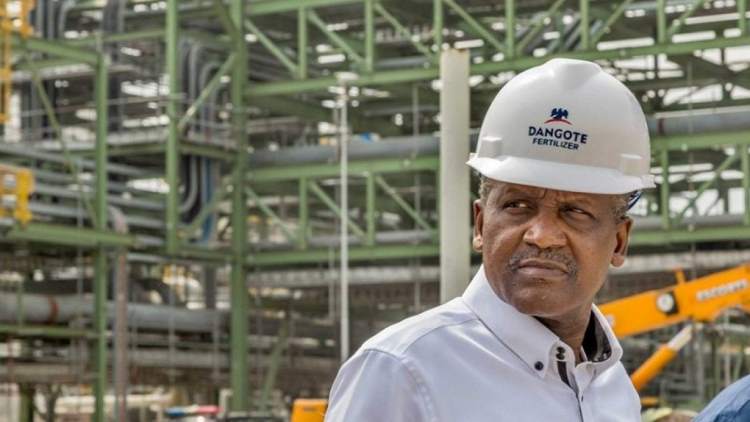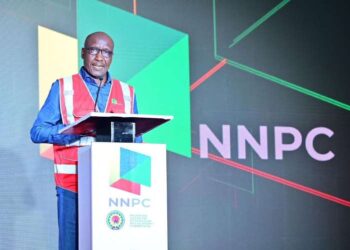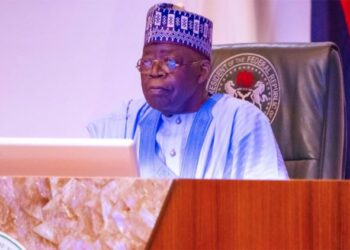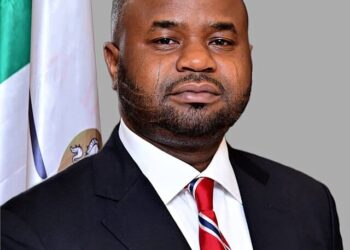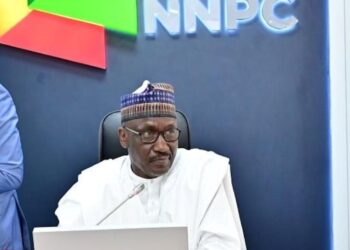In the last one month, easily one of the most discussed issues in Nigeria is the allegation by the Dangote Refinery accusing the International Oil Companies (IOCs) of frustrating its operations by refusing to sell crude to it.
In a statement released in July, which later followed up by Alhaji Aliko Dangote himself, the company said the IOCs preferred to sell their crude to Asian countries or ask them to buy from the foreign subsidiaries instead of giving them priority as directed by Nigeria’s upstream regulatory body, the National Upstream Regulatory Commission (NUPRC).
The company said this development would significantly affect the price of its products because to increase because the trading arms offer cargoes at $2 to $4 per barrel, above NUPRC official price.
“When we entered the market to purchase our crude requirement for August, the international trading arms told us that they had entered their Nigerian cargoes into a Pertamina (the Indonesia National Oil Company) tender, and we had to wait for the tender to conclude to see what is still available”, the company said recently in a statement.
In addition to the allegation against the IOCs, Dangote and his group have also accused oil marketers of shady business practices such as importation of adulterated diesel.
Naturally, some Nigerians have in a fit of patriotic fervor, lined up behind the Dangote Refinery accusing both the Nigerian government and the NNPC Limited, which, like Dangote, is a business entity operating in the same market, of through a business owned by a Nigerian under the bus.
The picture has been painted of a government not supportive of indigenous investment in the Nigerian oil and gas sector.
But is this really the case? Is the Federal Government throwing Dangote to the sharks? Is it out to destroy his business as is being alleged by some Nigerians? The truth is, the allegations do not square with the reality on the ground but are largely driven by sentiments.
Before addressing the real issues, let me first of all make a point which discerning Nigerians will admit to be the truth and nothing but the truth. And this is the fact that there is no Nigerian businessman living or dead who has been as mollycoddled or pampered by successive Nigerian governments, as Alhaji Aliko Dangote.
Practically every Federal Government since 1999 regardless of party affiliation has bent over backward to give the Kano born businessman unfair advantage over his competitors in the businesses he runs from the food, confectionery or cement business. He has been given waiver after waiver to the effect that he has literally wiped out competition in these businesses to create virtual monopoly. Businesses like Ibeto Cement and Larfage are some of the businesses whose market share shrunk as a result of the unfair advantage conferred on Dangote by the government. In fact, many Nigeria aver that but for government patronage and support, he would be nowhere the billionaire status that he enjoys today.
Now, to address Dangote’s allegations directly; the first issue to be established is that the oil and gas sector like every other sector of the Nigerian economy has its nuances or peculiarities. Further, before Dangote Refinery came on board, oil marketing had been in existence with a combined investment portfolio of over N3 trillion in the downstream petroleum sector.
The arrival on the scene of the refinery was welcomed by the marketers who saw it as a Nigerian project and they were ready to work with him for the mutual benefit of Nigerians and their businesses.
Early last month the marketers met with Dangote and raised concerns about his business model which was designed to sell fuels directly through the gantry and cut off depots. He acknowledged their worry and assured them that gantry sales commenced due to urgent needs to evacuate stock in order not to stall continuous refining process.
The gantry can load enough to meet daily national consumption (his actual aim and intent) except that roads will be damaged and it cannot be the same as loading from Lagos, Oghara, Koko, Ph, Ifie-Kporo, Mboh, Calabar and other locations where depots are located.
At the meeting marketers also mentioned the price disparity between local marketers and foreign traders who get DR’s product cheaper by at least, $50/metric tonne than what is offered local companies and Dangote promised that these would be addressed to the mutual benefits of all and he urged marketers to just come forward with orders; alas! DR reneged and continued as it had been selling.
Since the Petroleum Industry Act (PIA) 2021 allows imports under certain conditions, marketers proceeded to call his refinery’s bluff and import cheaper AGO! Dangote tried to block this through the Nigerian Midstream Downstream Petroleum Regulatory Authority (NMDPRA), the agency regulating Midstream and downstream operations in the oil and gas sector (NMDPRA) but both were reported to President Bola Tinubu who directed a reversal of the regulator’s blockade.
This did not go down well with Dangote and this showed when suddenly NMDPRA suddenly gave notice to marketers to stop all AGO imports on 1st June 2024 and directed them to source AGO locally and DR, which marketers resisted! The NMDPRA had used ‘afri5’ sulphur spec as the excuse.
Meanwhile, an ECOWAS Heads of Governments directive on ‘afri5’ is to become effective on 31st December 2024 and not June 1, 2024.
Dangote looking for a way to extract a pound of flesh, Dangote accused the NMDPRA of licensing marketers to import ‘dirty’ fuels, that is AGO with sulphur content above 50 parts per million! This was not true because as of February, marketers had started importing 50ppm AGO while DR was still producing 600-1200ppm AGO!
Marketers responded to Dangote’s allegations and stated the facts above in addition to the fact that Dangote was in fact producing AGO with high sulphur. That response to their false allegations shocked the Dangote team including the revelation of the sulphur in their product.
Aside Dangote’s tiff with marketers, he has also recently taken a shot at NNPCL accusing some of its officials of importing adulterated fuel. His grouse with the NNPCL is not difficult to fathom. As someone used to being pampered by government, Dangote probably went into the crude refinery business expecting to be wholly spoon-fed by government as had been the case with all his other businesses in the last two decades. It is not clear what promises or guarantees the Muhammadu Buhari administration gave to him; one thing is clear however, and that is he provided him all the support he needed as made evident Godwin Emefiele, former Central Bank of Nigeria (CBN) Governor during President Buhari’s commissioning of the unfinished refinery.
Emefiele told the world that a refinery, which was still being constructed and had thus yet to refine one litre of petrol, had paid back 70 percent of the loan it took from banks for the project!
For a refinery boasting a 650,000 bpd refining capacity, expecting the company to hand over all its crude to him was certainly an uninteresting joke. Surely, Dangote knows that Nigeria’s crude production currently stands at about 1.25 million barrels per day. With the 60/40 percent Joint Venture JV) Agreement with the IOCs and the various Production Sharing Agreements (PSCs), Nigeria nornally, should be getting around 750,000 barrels per day as in equity crude lifting.
But that is far from the reality. The reality is that the Buhari administration executed about seven forward sale agreements, that is, the government borrowed money and used Nigerian crude for several years as repayment. The Tinubu administration itself, secured a $3.3billion loan from Afrexim Bank at 11.58 percent interest, which is to be repaid with 90,000 barrels of crude per day. There’s a report that the NNPC is taking another $2b loan and is pledging 30,000 to 50,000 barrels of crude oil of Nigeria’s equity towards repayment.
This is in addition to another 90,000 bpd mentioned above. The implication is that the Federal Government would have executed in one year two forward sale agreements with crude oil commitment of140, 000 bpd.
When these deductions are taken away, Nigeria’s actual share of daily produced crude comes to around $200,000 barrels per day, which the government sells for $80 per barrel to earn about $16 million.
These are very clear and straightforward issues, which any diligent seeker of truth will uncover. One of the things they’ll discover for instance is that when Dangote recently imported WTI crude from the United States, he incurred four weeks of demurrage because he couldn’t pay for the crude oil. Here in Nigeria, even the IOCS he is gaslighting have bent over backward again and again to attend to his request but perhaps either out of ingratitude or sheer ignorance of how the system works, he is crying wolf.
The truth is that IOCS have is known in the industry as Special Purchase Agreement (SPA) with international buyers sometimes spanning ten to 20 years with in-built penalties for default. Despite this obvious challenge, one of the IOCS had to incorporate another trading company in London costing it millions of dollars just to sell crude to Dangote.
Dangote’s ship arrived at one of the IOCs export terminals, loaded crude oil, but once again, could not provide an LOC since 29th June 2024. The vessel is currently attracting demurrage. Dangote is asking for an additional $6/barrel discount and wants to pay in Naira. The reality is that no one will sell crude oil to him in Naira because oil blocks are awarded in dollars, signature bonus are paid in dollars, seismic survey and aeromagnetic survey with gravity data are acquired in dollars, interpretation of the data is 80% dollars, oil wells are drilled in dollars, production facilities are constructed in dollars and so on.
What emerges from of all of this is that Dangote’s capacity to finance his operations has shrunken drastically. The situation is made more difficult by the fact that the Federal Government, it’s biggest backer is itself, facing serious cash crunch and so cannot rescue him.
A few options are available to Dangote but the most viable of them is that he should consider divesting some of his shares in the refinery. It may seem a difficult option but it is the best for him given the circumstances.
There are business entities who toed a similar path when confront with some of the challenges seemingly facing Dangote. In Saudi Arabia, the Saudi government sold Aramco, the national oil company to the public when it faced difficulties.
Even Microsoft founder, Bill Gates sold off majority of his stake in the company retaining a mere five percent interest in the business. Gates took that route after facing anti-trade court cases following Microsoft’s monopolistic nature, which had caused the collapse of several IT companies.
Dangote should do the needful by selling shares to Nigerians as it is obvious given the intricate nature of business in the oil and gas sector particularly the huge capital outlay required to keep a business going, he cannot pull it off alone.
The writer is an Abuja based public policy analyst .
Disclaimer: This article is entirely the opinion of the writer and does not represent the views of The Witness.


